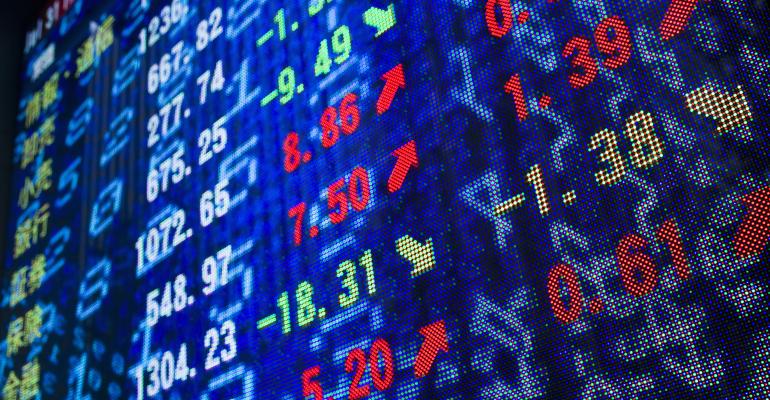(Bloomberg) -- Turmoil in megacaps like Apple Inc. is stirring investor anxiety. But for professional stock pickers, it’s mostly good news when the market’s biggest companies loosen their grip.
Since the start of the year, 57% of large-cap mutual funds have beaten their benchmarks, marking the industry’s best start to a year in almost a decade, data compiled by Goldman Sachs Group Inc. show. A key driver is the easing dominance of mega-companies that funds chronically own too little of.
Now, hope for an economic rebound is breathing life into everything from small caps to once-ignored stocks such as energy, expanding the pool of winners. The Russell 2000 is poised to beat the Nasdaq 100 for a sixth straight month while a version of the S&P 500 that strips out market-value bias is up 6.6% this year, twice as much as the cap-weighted gauge.
“As the market is seeing more leadership arrive from stocks that are lower in the market-cap spectrum, that ability to pick stocks is going to add value,” said Matt Miskin, co-chief investment strategist at John Hancock Investment Management. “It really comes back to active managers finally having their day in the sun.”
Gains from value and cyclical stocks -- companies trading at low multiples on earnings or geared more toward an economic recovery -- have been a tailwind for active funds, according to a Goldman Sachs study from strategists including David Kostin. Heading into 2021, fund managers had increased their exposure to value to a record high while leaning toward cyclical shares such as financials and energy. Those are this year’s best performers and value is off to the best start of a year in two decades relative to its growth counterpart.
So far, the year is shaping up as a more favorable one for active investing after the stay-at-home, safety trade ruled equities in 2020. Among the six largest stocks -- a cohort loosely defined as Faang that includes Facebook Inc., Amazon.com Inc., Apple, Microsoft Corp., Alphabet Inc. and Tesla Inc., a new addition to the S&P 500 -- four are in red in 2021.
All told, 54% of S&P 500 stocks have done better than the broad gauge. That contrasts with last year, when only 37% of S&P 500 stocks beat the broad gauge, the lowest proportion since 1999, and the Faang block accounted for half of the index’s gain.
Among some 250 funds benchmarked to the S&P 500 that have at least $500 million in assets, roughly one-fifth of them hold Faang stocks in greater proportion to their weighting in the index. On average, the Faang-loving funds are up 3.2% this year, trailing a gain of 5.7% for those that have no stake, data compiled by Bloomberg show.
In the eyes of Morgan Stanley analysts, stock picking will be a bigger driver now that the broad market is pricing in an economic recovery and the S&P 500 has limited upside, sitting near the firm’s year-end target of 3,900. The team developed a model to identify areas where Covid-related benefits and damage appear mispriced. To them, banks, energy and airlines are among industries with under-appreciated opportunities while sectors tied to durable goods and consumption from home are priced for perfection.
Lawrence Creatura, a fund manager at PRSPCTV Capital LLC, agrees that there are abundant mispricings in the market.
“It’s as if someone went into the grocery store and changed all the price stickers on the products,” he said. “There are now more products that have the wrong prices on them on the shelves and that’s a great thing for stock pickers.”
--With assistance from Claire Ballentine and Vildana Hajric.





